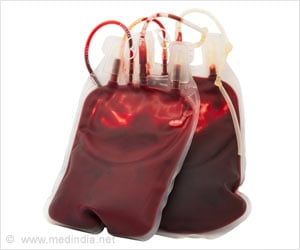It is known that alcoholic patients suffer from cognitive deficits, but a new study has suggested that alcoholics also show emotional processing deficits
It is known that alcoholic patients suffer from cognitive deficits, but a new study has suggested that alcoholics also show emotional processing deficits, something that may be a reason why they fail to perceive dangerous situations.
Earlier brain-imaging studies have concentrated only on cognitive deficits rather than emotion. The new study observed emotional processing with the help of functional magnetic imaging (fMRI). The findings reveal that alcoholics have diminutive abilities to recognize dangerous situations.“We knew that alcoholics show a deficit in accurate recognition of facial emotions,” said Jasmin B. Salloum, research scientist at the National Institute on Alcohol Abuse and Alcoholism and corresponding author for the study.
“This can lead to insensitivity to, and overestimation and/or misattribution of, certain facial expressions,” Salloum added.
“Relatives and friends of alcoholics often wonder why they continue to drink even though they intellectually know how detrimental this is for them,” added Andreas Heinz, director and chair of the department of psychiatry at Charité – University Medical Center Berlin.
“Patients often relapse when entering previous drinking situations, that is, entering a bar or a shop in which you can buy alcoholic drinks. One reason may be that they fail to perceive dangerous situations. This study suggests that there is a neurobiological correlate of this often-reduced ability to perceive dangerous situations.”
Study participants comprised 11 male subjects who met DSM-IV criteria for alcohol dependence, as well as 11 healthy male subjects or “controls.” All participants were given a facial-emotion decoding task during which they were asked to determine the intensity level of a target emotion displayed via facial expressions of happy, sad, anger, disgust and fear.
Advertisement
Results showed that the greatest deficit among the alcohol-dependent individuals was in brain activation during decoding of negative emotional expressions, particularly in the affective division of the anterior cingulate cortex. The anterior cingulate is part of the prefrontal brain area.
Advertisement
The findings in this study may shed some light on some of the problematic and psychopathological behaviors that are manifest in this patient group. It remains to be determined if the dysfunction of the anterior cingulate precedes alcoholism or is a result of long term drinking.”
However, Heinz added that the research has helped people understand why alcoholics face problems perceiving dangerous situations. “Now we can begin to understand why patients have problems avoiding dangerous situations and, particularly, why they may not react to the concerns of their friends and relatives: the brain area that should help them appreciate these concerns is functioning at a reduced level,’ Heinz said.
“Furthermore, the authors also observed a normal or even increased brain response to happy faces. Our group recently made a similar observation, in that patients with strong brain responses to pleasant pictures have a reduced relapse risk. So, relatives and friends may want to support alcoholic patients with positive messages that strengthen their self-esteem while being particularly careful, and even repetitive, in pointing out the dangers of alcohol and alcohol-associated environments. Otherwise, the patients may miss the message,” Heinz added.
The results of the study are published in the September issue of Alcoholism: Clinical & Experimental Research.
Source-ANI
LIN/J






